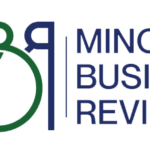Because getting through the day isn’t the same as thriving through the year.
Time management has long been considered the cornerstone of productivity. We live by our calendars, count down hours, and aim to squeeze more output into less time. But here’s the uncomfortable truth: no amount of perfect scheduling will help if you’re physically exhausted, emotionally drained, or mentally scattered.
If you’ve ever looked at your schedule and thought, “I have the time to do this, but I just don’t have it in me,” you’re not alone. You don’t need more hours. You need more energy.
This is where energy management becomes essential. Unlike time, energy is renewable but only if you know how to replenish it.
Why Energy Management Is the Game-Changer
Tony Schwartz, author and performance expert, says it best:
“Energy is the fundamental currency of high performance.”
You can’t perform at your best or lead others if your tank is running on empty. While time is about quantity, energy is about quality. You might have two uninterrupted hours to write that proposal, but if your brain is foggy or your mood is flat, those two hours won’t deliver high-quality results.
Energy management helps you protect your capacity to think clearly, make strong decisions, build meaningful relationships, and stay resilient over time.
The 4 Core Types of Energy (And How to Manage Them)
To manage your energy holistically, you need to look beyond the physical. Your emotional, mental, and spiritual energy matter just as much. Here’s a breakdown of each type:
1. Physical Energy – The Foundation
Ask yourself: Am I rested and fueled?
Your physical energy is influenced by sleep, nutrition, hydration, and movement. Skimping on any of these leads to fatigue, sluggishness, and decreased stamina.
How to protect it:
- Prioritize consistent sleep (7–9 hours for most adults)
- Stay hydrated throughout the day
- Incorporate regular physical activity, even if it’s a daily walk
- Eat balanced meals with protein, fiber, and healthy fats
Start your day with movement. A short stretch, walk, or quick workout can improve both your mood and focus.
2. Emotional Energy – Your Inner Stability
Ask yourself: Am I centered or reactive?
Your emotions influence how you respond to challenges, how you lead, and how you connect with others. High emotional energy means feeling grounded, confident, and composed. Low emotional energy shows up as irritability, anxiety, or emotional burnout.
How to protect it:
- Practice mindfulness or breathing exercises to calm your nervous system
- Set healthy boundaries emotionally, socially, and digitally
- Engage in relationships that uplift you
- Journal or reflect to process your thoughts and regulate stress
It’s okay to pause and reset when things feel overwhelming. Emotional composure is part of sustainable leadership.
3. Mental Energy – Your Focus and Clarity
Ask yourself: Am I focused or scattered?
Mental energy is your ability to think clearly, solve problems, and concentrate. It drains quickly in environments with constant interruptions or pressure.
How to protect it:
- Tackle deep-focus tasks during your most alert hours
- Avoid multitasking focus on one thing at a time
- Take breaks every 90–120 minutes to mentally reset
- Limit exposure to digital noise and information overload
Try working in focused intervals, such as the Pomodoro Technique (25 minutes work, 5 minutes rest), to enhance clarity and productivity.

4. Spiritual Energy – Your Sense of Purpose
Ask yourself: Am I connected to purpose?
Spiritual energy isn’t necessarily about religion. It refers to meaning—feeling like your work, goals, and efforts contribute to something bigger than yourself. This kind of energy sustains you when times get tough.
How to protect it:
- Reflect on your values and align your goals with them
- Pursue projects or tasks that feel meaningful to you
- Volunteer, mentor, or serve others to connect with purpose
- Reassess your direction regularly to avoid drifting
When you feel purpose-driven, your energy becomes more resilient and focused. You’re not just working you’re building something worthwhile.
How to Start Managing Energy Today
1. Audit Your Energy Weekly
Every Monday, set aside 10 minutes to check in with each energy category:
- What drained me last week?
- What restored or energized me?
- What changes do I need to make this week?
Tracking this consistently can reveal patterns that help you design a more energizing routine.
2. Build Personal Energy Rituals
Just like you plan work meetings or workouts, schedule time for recovery and recharging. Examples include:
- A morning routine that sets the tone for focus
- Midday walks or quiet breaks to reduce stress
- Weekly tech-free time to reconnect with yourself or loved ones
3. Redefine Productivity
Being productive isn’t about doing more. It’s about doing what matters—with clarity and consistency. That requires fuel, not just discipline.
So instead of overloading your calendar, ask:
- When do I feel most energized?
- What boundaries do I need to protect that energy?
- How can I work with my natural rhythm, not against it?
Energy Is the New Edge
Time may be a fixed resource, but your energy is yours to protect, nurture, and grow. And in today’s world where burnout is common and distraction is everywhere those who manage their energy well will outperform those who only manage their time.
So this Monday, and every Monday after, don’t just fill your schedule. Fuel your performance. Protect your energy. Connect with purpose.


